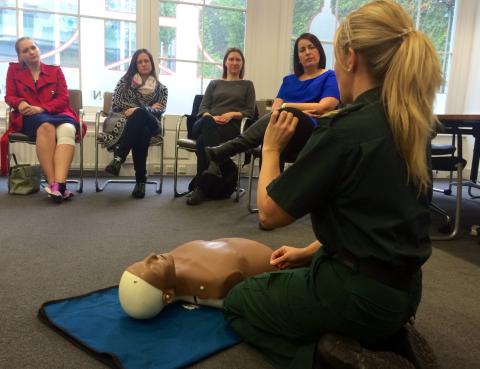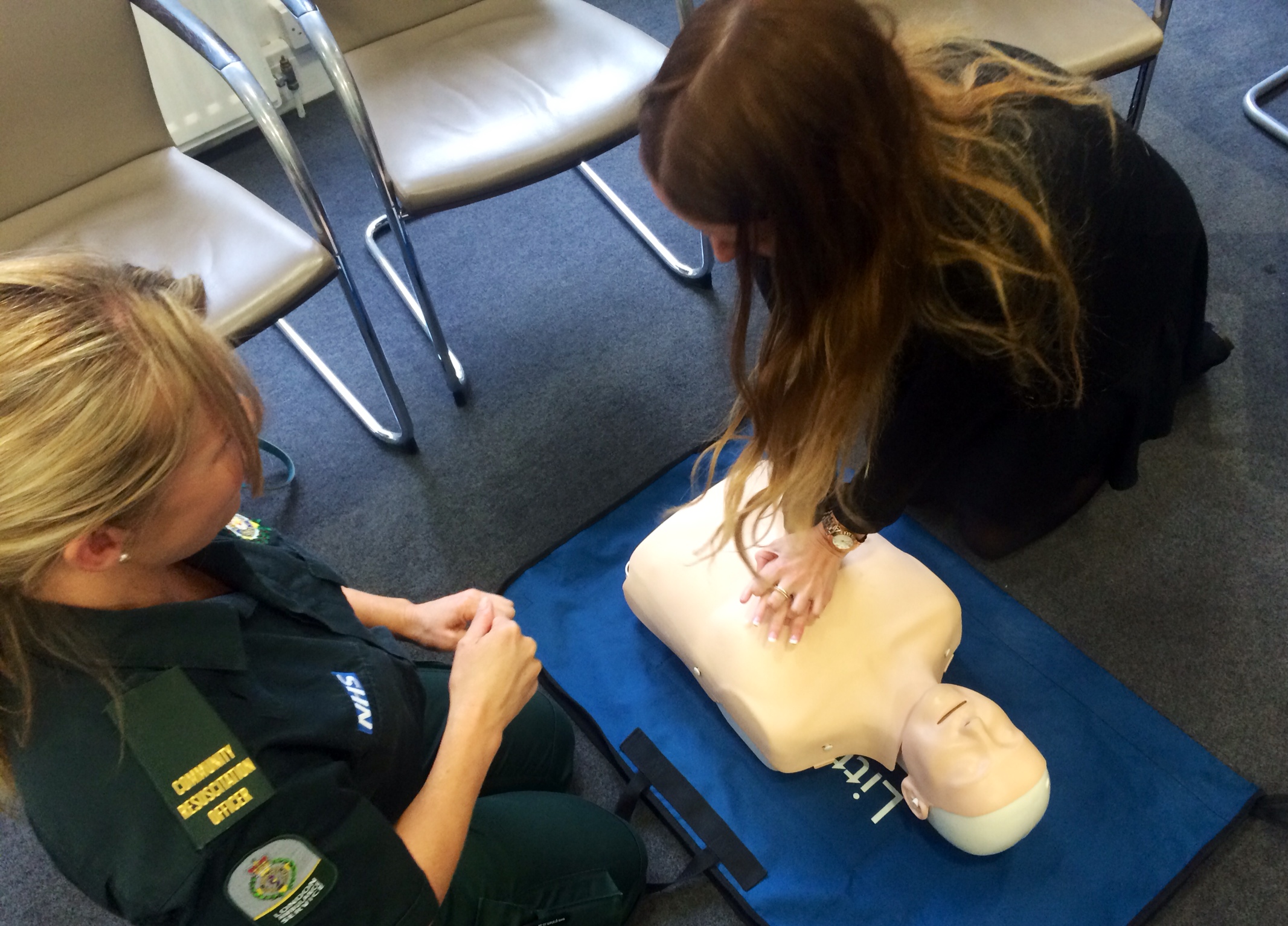7 Dec 2018

A London Ambulance Service paramedic visited our offices last week to give emergency life-support and defibrillation training.
Paramedic Lynsey Grant explained to charity staff and volunteers ‘the chain of survival’. She talked about how to recognise early the symptoms of cardiac arrest, through to how to deliver cardio-pulmonary resuscitation (CPR), and how to use an Automated External Defibrillator (AED).
Learning basic life-support means that when someone suffers a cardiac arrest, you will be able to help restart their heart. Whether you’re on the street, in someone’s home or in an airport, basic life-support can help save lives.

An AED is a safe, reliable, computerised device that can analyse heart rhythms and enable a non-medically qualified individual to safely deliver a life-saving shock. Using one can dramatically increase the chances of a patient’s survival, and help lay the foundations for early and effective pre-hospital care when trained medics arrive on scene.
The longer someone in cardiac arrest goes without basic life-support, the harder it is to help them. Every second counts so that’s where you can make a difference. If you would like to learn more about taking part in emergency life-support training courses, please email [email protected].

